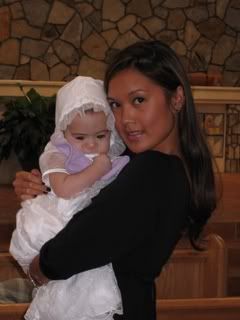So what is PRIVACY?
My own personal definition of privacy is the ability to keep things to myself, without any kind of disturbance from anything or anyone. It is also a form of secrecy for me. Privacy is an important part of my life; without it I wouldn’t have a sense of individuality. Although my definition sounds pretty accurate, I like what Bob Sullivan says in his article. He says that “most Americans struggle when asked to define privacy.” He also states that “more than 6,500 MSNBC readers tried to do it in our survey. The nearest thing to consensus was this sentiment, appropriately offered by an anonymous reader: “Privacy is to be left alone.”
But a real definition sounds something more like this…
According to Wikipedia, “privacy is the ability of an individual or group to keep their lives and personal affairs out of public view, or to control the flow of information about themselves. Privacy is the ability of an individual or organization to reveal oneself selectively.” As I stated above, some people like famous celebrities don’t have this luxury of privacy. The public is always curious about their lives so people will do ANYTHING to get information about them, whether it is photographs, rumors heard, stories, etc.
Another invasion of their privacy can be seen on online gossip forums, like Perezhilton.com. This is actually an example of Internet privacy, being invaded. Internet privacy is privacy over media of the Internet. Wikipedia states that it is “the ability to control what information one reveals about oneself over the Internet, and to control who can access that information.” Perez Hilton does just the opposite of this. On his website, he reveals the lives of all the famous celebrities in the spotlight at the moment. He doesn’t just tell you what’s happening in their lives, but he also pokes fun at them. If Perez doesn’t like you, he’ll humiliate you in EVERY way he can. These poor celebrities have NO control as to what Perez says about them. They have no control about the information being revealed about them either.
I have to admit, I do access Perezhiton.com often just because it is so entertaining. It takes me far away from my own personal life and the stress that comes along with it. It seems lame, but it’s my guilty pleasure.
Here's Perez with two of the "most wanted" celebrities...haha!

Here's a picture that Perez puts on his site when he DOESN'T like you!

Another form of privacy and the internet that I am directly involved with are the social networks such as Myspace and facebook. In Danah Boyd’s article, she says that these social networks are “ubiquitous” or exist everywhere, and our generation uses them to access every part of the public life. I completely agree with her. It seems as if we’ve lost our sense of privacy here. We’ve placed ourselves onto the Internet with these sites, and we’re allowing people to know a lot about us. We are revealing our private lives with stories and pictures that almost anyone can access. Sometimes there are those who get very carried away by revealing TOO much, which can be seen in their photographs. In Boyd’s article it says that “most adults are panicking,” and that “they do not understand the shifts that are taking place and, regardless, they do not like what they are seeing.” It is obvious why some adults feel this way. There are a lot of young kids out there taking provocative pictures of themselves, making pretend they are a lot older than they are, and even engaging in meeting random strangers that they meet on these social sites.
Here is an anonymous person.
This is just an example of the type of pictures people include in their profiles.

Too much? I think so! Do you think her page is private? NOT!
http://www.barbye18.peperonity.com/ in case you were interested...
Ok, so is there ANY way we can fix this?
In my opinion, "kids will be kids". I put that in quotes because apparently, it's not just kids that choose to reveal themselves in improper ways, because as you can see above adults do it too. You can’t control the amount of information that someone wants to reveal about themselves. As far as I’m concerned, I’ve put a lot of privacy settings on my Myspace profile and on my Facebook. I don’t like to reveal too much to anyone, nor am I friends with complete strangers. The only people that can access my profile are people that I’m friends with. This is the reason why I’ve never experienced an invasion of my privacy on the Internet. I’ve made it hard for random people to access my pages. I would recommend this to all users on these sites, but sometimes you’ll find people who don’t care much about their privacy. It seems strange to me, but whatever floats their boats.
References:
- Danah, B. (2007). “Social Network Sites: Public, Private, or What?”Knowledge Tree. Retrieved on 26 September, 2007 from http://kt.flexiblelearning.net.au/tkt2007/?page_id=28
- Internet Privacy. (2007). In Wikipedia, The Free Encyclopedia. Retrieved on 26 September, 2007 from http://en.wikipedia.org/w/index.php?title=Special:Cite&page=Internet_privacy&id=159183503
- Sullivan, Bob. (2006, October). Privacy Lost: Does Anybody Care? Retrieved on 24 September, 2007 from http://www.msnbc.msn.com/id/15221095/print/1/displaymode/1098/
- Myspace.com
- Perezhilton.com


